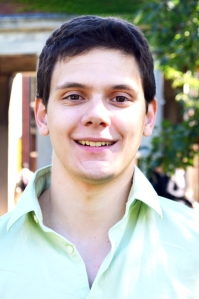Reflections of a Conference Staff Member
When I told my friends I was going back to NGLA this year I was often met with a confused face and questions along the lines of why – why are you going back? Simply put, last year NGLA was one of the best experiences I’ve had.
I originally attended not knowing what to expect. As a junior coming from the University of Rochester I had never been to a large conference before, let alone a Greek leadership conference. It was a bit intimidating. I thought that – coming from a mid-sized University and a smaller chapter – I was experiencing problems with my chapter that were unique to us. Sure, others would have similar issues but ours were one-of-a-kind.
Within ten minutes of the first session I realized how mistaken I was. I quickly became acquainted with other leaders and instantly connected with them. We talked like long lost friends – relating and empathizing with each other over our trials and tribulations within our respective organizations. From here, the solutions began to flow. Students elaborated on how they solved issues such as keeping each other accountable, dealing with growth of membership, and motivating others. Professionals presented on techniques to build a better fraternity, integrating ritual into our everyday lives, leading with our values in the face of adversity, and so much more. Personally, I came away with a much better understanding of what will and won’t work to motivate others, ways to keep each other accountable I’m sure I never would have thought of on my own, and how to better shape my organization to succeed.
Upon returning I started applying the skills I learned – skills which ultimately made me a better leader. I was able to help motivate a great team of other leaders and we were able to accomplish more than I had ever thought we would have.
It is in this I decided to apply to volunteer at NGLA, a mix of selfishly wanting to continue my personal growth as a leader and selflessly wanting to give back to others to help ensure that they have an amazing experience. Seeing other have the ah ha! moments, listening to others as they express how much the last presentation made so much sense, and knowing that we are helping to shape the leaders of tomorrow is rewarding beyond belief.
However, as a volunteer, the personal growth aspect has been much different than what I expected. I’ve had the opportunity to interact with so many leading professionals in the field and have seen how they live their letters in every interaction and how their ritual is not just words on paper, it is a way to live life. These interactions remind me on my own values, challenge me to critically examine how I am living out my values, and push me to improve. I ultimately hope that others can look at me and say the same thing some day.
Whether it is from students, volunteers, or presenters, those at NGLA have challenged me to achieve. It is through these challenges that I have been able to critically examine myself, what I believe, and how I act, in order to become a better leader and improve an organization. It would be selfish of me to not seek to challenge others in the same way – and that is how I hope to leave my legacy. Once I return, I will have less than 70 days until I graduate. In those final days, I can only get so much done by myself. However, I can challenge others to challenge themselves and reflect as NGLA has allowed me to do. I can challenge others to become the best the person they can be while improving the lives of others. If I can do this, even just for a few, I will have left a worthwhile legacy.
About Nick: Nick is a senior majoring in mathematics and economics at the University of Rochester. He has served as president of his chapter, vice-chairman of his university’s IFC, and vice-president of the University of Rochester chapter of Order of Omega. He further serves on Phi Kappa Tau’s Undergraduate Advisory Board. After graduation Nick hopes to go into a career in Economic Consulting.

